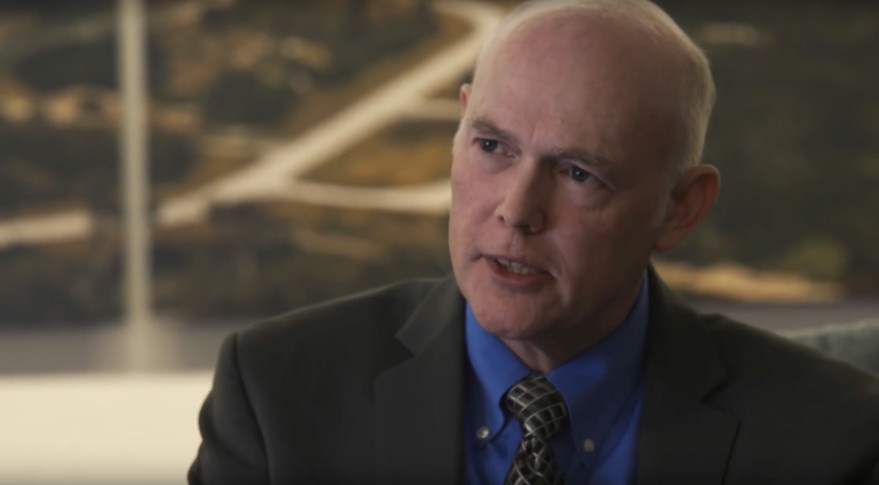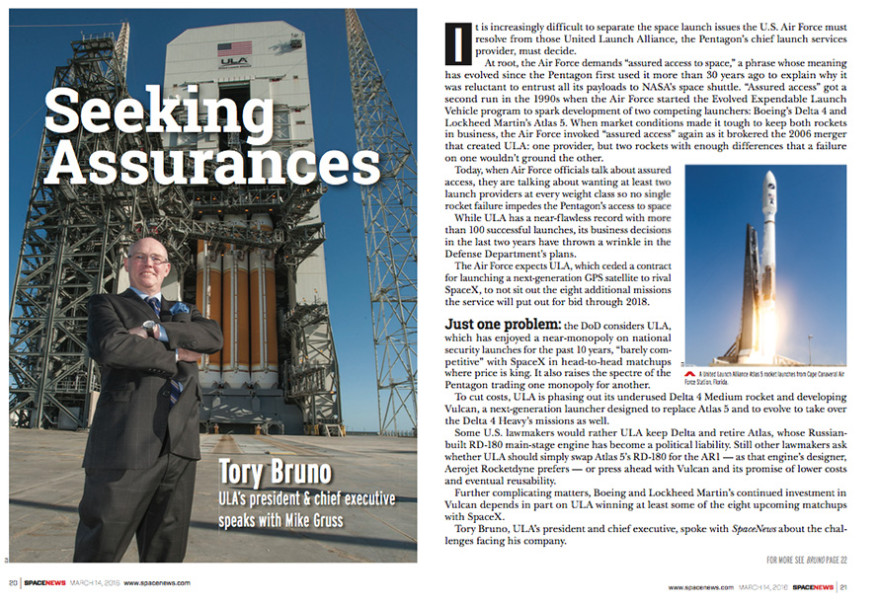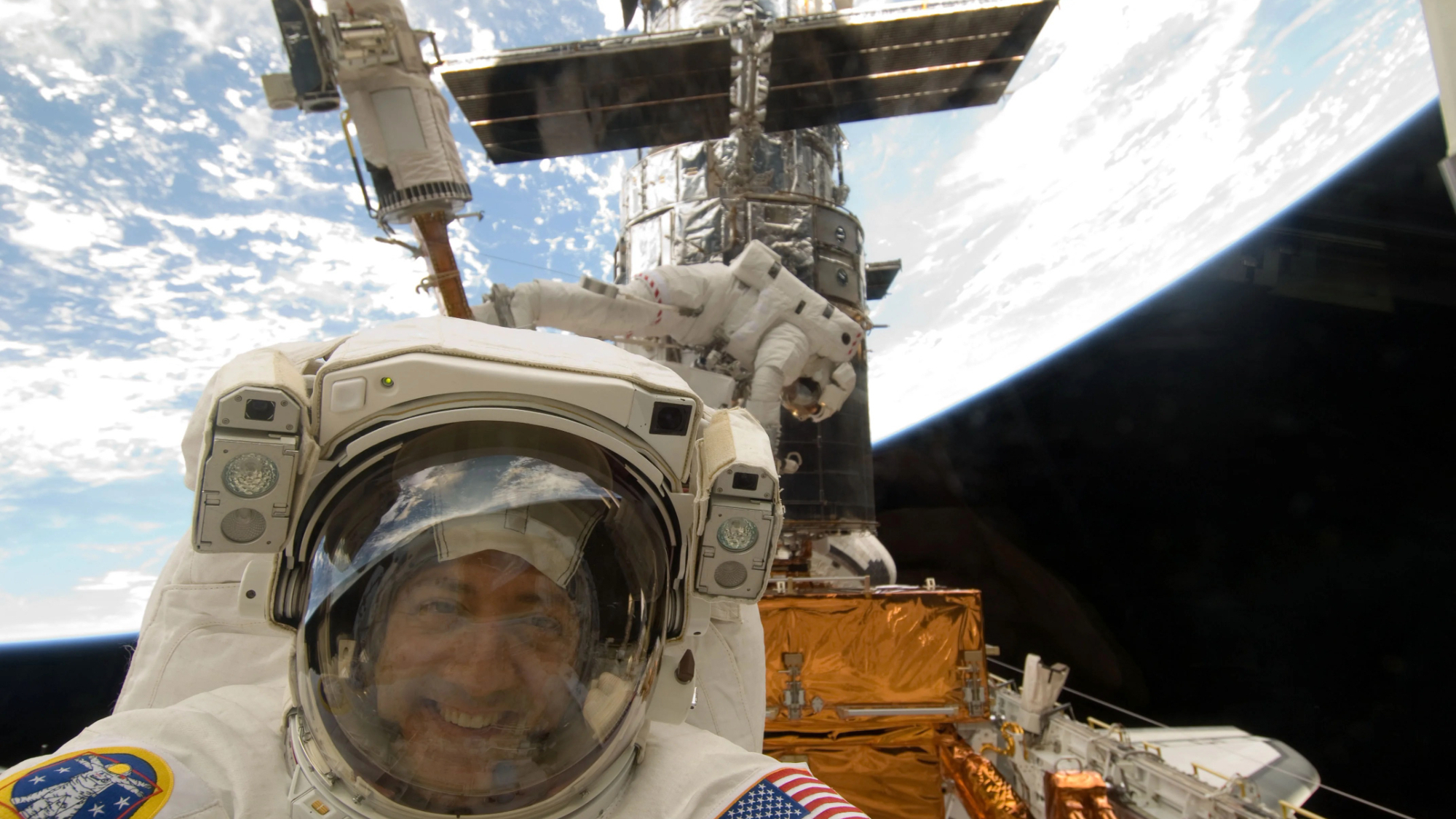ULA Chief Disavows His Head Engineer's Take on Vulcan Engine Competition

WASHINGTON — United Launch Alliance sought to distance itself Wednesday from remarks its vice president of engineering made Tuesday implying the Denver-based rocket builder has all but decided to use Blue Origin's BE-4 engine instead of Aerojet Rocketdyne's AR1 to power its next-generation launcher.
"These ill-advised statements do not reflect ULA's views or our relationship with our valuable suppliers," ULA Chief Executive Tory Bruno said Wednesday via Twitter. "We welcome competition."
Aerojet Rocketdyne supplies strap-on boosters for ULA's Atlas 5, main-stage engines for the Delta 4, and upper-stage engines for both vehicles.
Speaking Tuesday at the University of Colorado, Boulder, ULA Engineering Vice President Brett Tobey, highlighted the financial advantage the Jeff Bezos-backed Blue Origin has over Aerojet Rocketdyne.
"Compare it to having two fiancées, two possible brides," Tobey said of ULA's approach to the two. "Blue Origin is a super-rich girl, and then there is this poor girl over here, Aerojet Rocketdyne. But we have to continue to go to planned rehearsal dinners, buy cakes and all the rest with both.
"We're doing all the work on both, and the chance of Aerojet Rocketdyne beating the billionaire is pretty low. Basically we're putting a whole lot more energy into BE-4 for Blue Origin."
Tobey, a University of Colorado alumnus, joined ULA in September after a 32-year career with Lockheed Martin, one of ULA's corporate parents.
Get the Space.com Newsletter
Breaking space news, the latest updates on rocket launches, skywatching events and more!
ULA executives have said Blue Origin's development efforts are 16-18 months ahead of Aerojet Rocketdyne's work on AR1, which is getting a $115 million shot in the arm from the U.S. Air Force this year under a contract that could pump more than $500 million into the engine through 2020.
Bruno, in an interview for the March 14 issue of SpaceNews' biweekly magazine, said the company expects to wait until Blue Origin does a full-scale BE-4 static fire test later this year before making a decision on which engine to use for Vulcan.
"Aerojet is also doing great by the way," Bruno told the magazine. "They're a little but further behind but they're also doing very, very well in their testing. Once we down select, obviously we want to stop investing in the engine we're not going to use."

This story was provided by SpaceNews, dedicated to covering all aspects of the space industry.
Join our Space Forums to keep talking space on the latest missions, night sky and more! And if you have a news tip, correction or comment, let us know at: community@space.com.
Brian Berger is the Editor-in-Chief of SpaceNews, a bi-weekly space industry news magazine, and SpaceNews.com. He joined SpaceNews covering NASA in 1998 and was named Senior Staff Writer in 2004 before becoming Deputy Editor in 2008. Brian's reporting on NASA's 2003 Columbia space shuttle accident and received the Communications Award from the National Space Club Huntsville Chapter in 2019. Brian received a bachelor's degree in magazine production and editing from Ohio University's E.W. Scripps School of Journalism.










